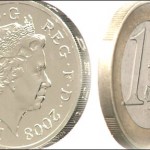Arabica coffee capped its biggest two-day decline since 2010 on Wednesday and Thursday and extended losses to a one-month low on Friday as weather forecasts predicted rains in Brazils main growing regions that would ease stress on the crop. Robusta beans traded near a one-month low as well amid improved weather prospects in Vietnam, the largest producer of the variety.
On the ICE Futures U.S. exchange, Arabica coffee for delivery in May traded at $1.7260 per pound at 11:32 GMT, down 0.89% on the day. Prices shifted in a daily range between $1.7420 and a one-month low of $1.7130 per pound. The contract slid by 6.1% on Thursday and closed the session at $1.7415, marking a 9.1% Wednesday-Thursday decline, the steepest two-day fall since 2010. Prices rose to a two-year high of $2.0975 per pound last week.
Meanwhile, robusta coffee for settlement in the same month traded at $2 033.00 per ton at 11:48 GMT, down 0.25% on the day. The contract held in a daily range between $2 036.00 and $2 017.00 a ton. Robusta beans plunged 2.5% on Thursday, their sixth straight daily decline. Prices jumped 3.8% last week, having touched $2 218.00 on Wednesday, the highest since October 2012.
Arabica futures extended their downward movement as rains across Brazil, the largest producer of the Arabica variety, were expected to ease stress on the crop. According to MDA Weather Services, a cold front this weekend and early next week will bring more precipitation to Brazils Parana and Sao Paulo, as well as Minas Gerais, the countrys top producing state.
Tom Pugh, commodities economist with Capital Economics, said, cited by CNBC: “It tends to be that in these kinds of bad weather events everyone automatically goes to your worst-case scenario but recently weve had a bit of rain and better weather. It is looking like the damage might not be as bad as people first thought so I think that is why prices have started to fall back.”
The much needed precipitation comes after Brazil saw its driest summer since 1972. However, Brazil’s coffee export association Cecafe said last week that the nation’s ample inventories from the previous harvest will ease the effects of this year’s severe drought and also help boost exports by 6%. According to Cecafe, Brazil’s outbound shipments should jump to 33 million bags in 2014, up from 31.1 million in the preceding season.
Despite the shortage concerns, Societe Generale is still expecting a supply surplus of coffee. The bank estimates that production will exceed consumption by 1.5 million 60-kilogram bags, even though Brazils arabica output may drop by 10% from a year earlier.
Better weather in Vietnam as well
Robusta coffee also extended its decline into a seventh day as the coffee producing areas in Vietnam, the worlds biggest producer of the variety, will also see rains in the upcoming days, curbing fears of reduced production. According to MDA Weather Services, the Central Highlands should receive precipitation during the next couple of weeks.
Robusta jumped to the highest in almost 1-1/2 years last Wednesday as coffee growers in Vietnam held back sales and kept record inventories due to expectations for future price jumps amid bad weather conditions. Growers have sold 50% of their record harvest that amounted to 1.7 million tons in the year started October, 10% below the average of the previous five years. According to data compiled by Bloomberg, inventories surged to 850 000 tons in the seven days through March 7th, a record for this time of the year.
Huynh Quoc Thich, deputy head of the agriculture department in Dak Lak province, said for Bloomberg: “It’s dry every year during this time, so at this point, it’s not an issue and has not hurt coffee trees yet. However, if sunny weather is prolonged, the situation may become problematic.”





